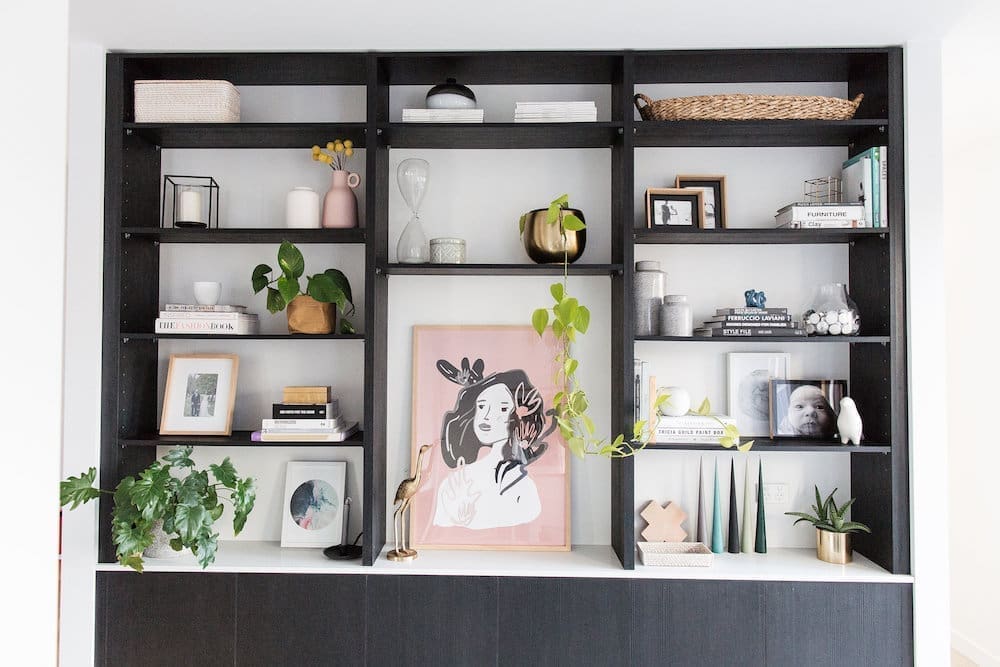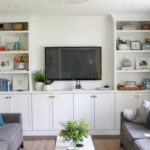Unlock Your Home’s Potential: The Ultimate Guide to Bookshelf Styling
Bookshelves. They’re more than just storage; they’re a statement piece, a reflection of your personality, and a key element in creating a warm and inviting atmosphere in your home. Whether you have a towering floor-to-ceiling unit or a small, charming shelf, styling your bookshelf can significantly impact the overall aesthetic of your space. But where do you begin? This comprehensive guide will walk you through everything you need to know to transform your bland bookshelf into a captivating focal point.
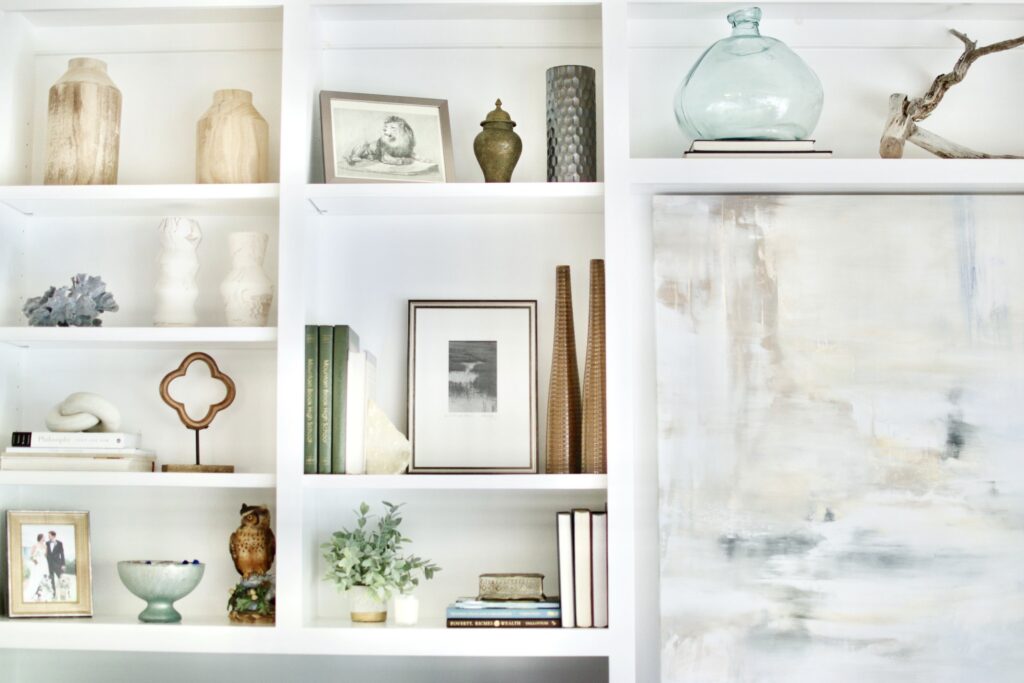
Understanding Your Style and Space
Before diving into the specifics of arranging books and décor, it’s crucial to understand your personal style and the limitations of your space. Are you drawn to minimalist aesthetics, eclectic maximalism, or something in between? The style you choose should dictate the overall look and feel of your bookshelf. Consider the size and shape of your bookshelf as well. A small, narrow shelf will require a different approach than a large, expansive unit.
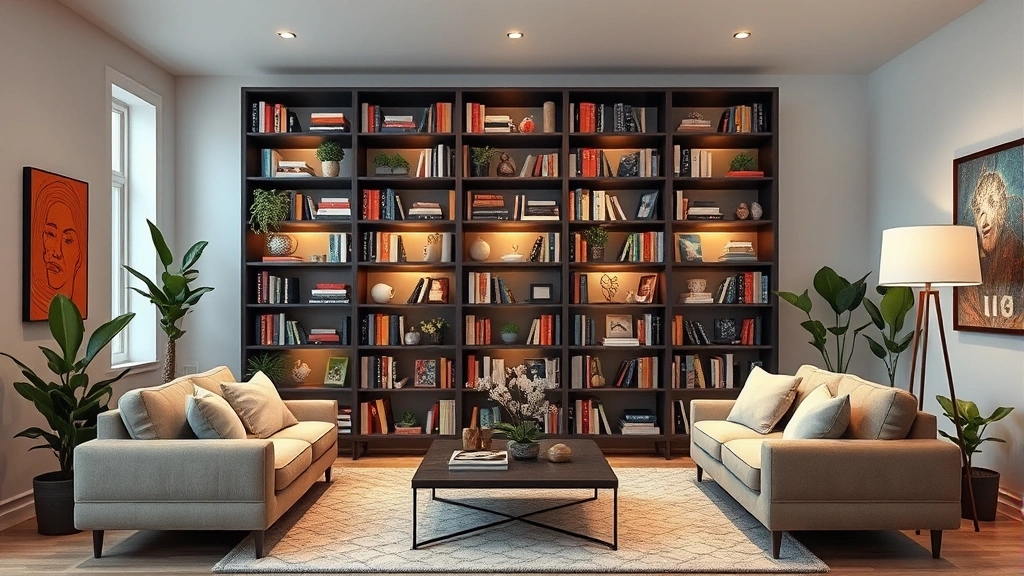
Defining Your Style:
- Minimalist: Clean lines, limited items, a focus on negative space.
- Traditional: Classic books, organized by color or genre, perhaps some family photos.
- Eclectic: A mix of styles, colors, and textures; showcasing unique items and collections.
- Modern: Geometric shapes, neutral colors, a focus on functionality and clean lines.
- Bohemian: Layered textiles, vibrant colors, global-inspired décor, and a sense of free-spiritedness.
The Foundation: Books and Their Arrangement
Books form the foundation of any bookshelf styling project. Don’t underestimate their visual impact! Consider these tips for arranging your literary collection:
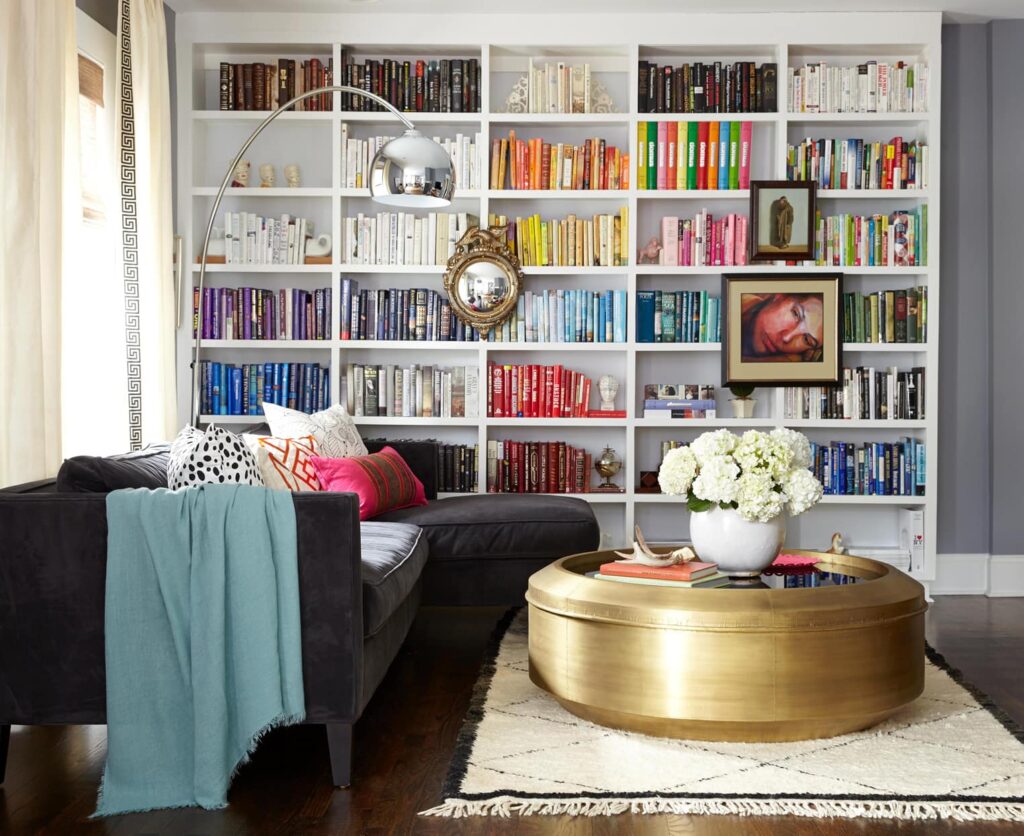
- Vary the height and orientation: Don’t just stack books uniformly. Lay some flat, stand others vertically, and create varied heights for visual interest. This creates depth and prevents a monotonous look.
- Group books by color or subject: This can create a cohesive and visually appealing arrangement. For example, group all your cookbooks together or arrange books by color gradient, from dark to light.
- Use bookends: These are not only functional but also stylish. They can add a touch of personality and help keep your books organized.
- Don’t be afraid to leave some space: Negative space is just as important as filled space. Avoid overcrowding your shelves. Leave some gaps to avoid a cluttered look.
- Consider the spines: The color and design of the book spines can significantly influence the overall look. Consider arranging books with visually appealing spines prominently.
Adding Personality: Décor and Accessories
Once you’ve arranged your books, it’s time to add personality with decorative items. This is where you can truly showcase your style and interests.
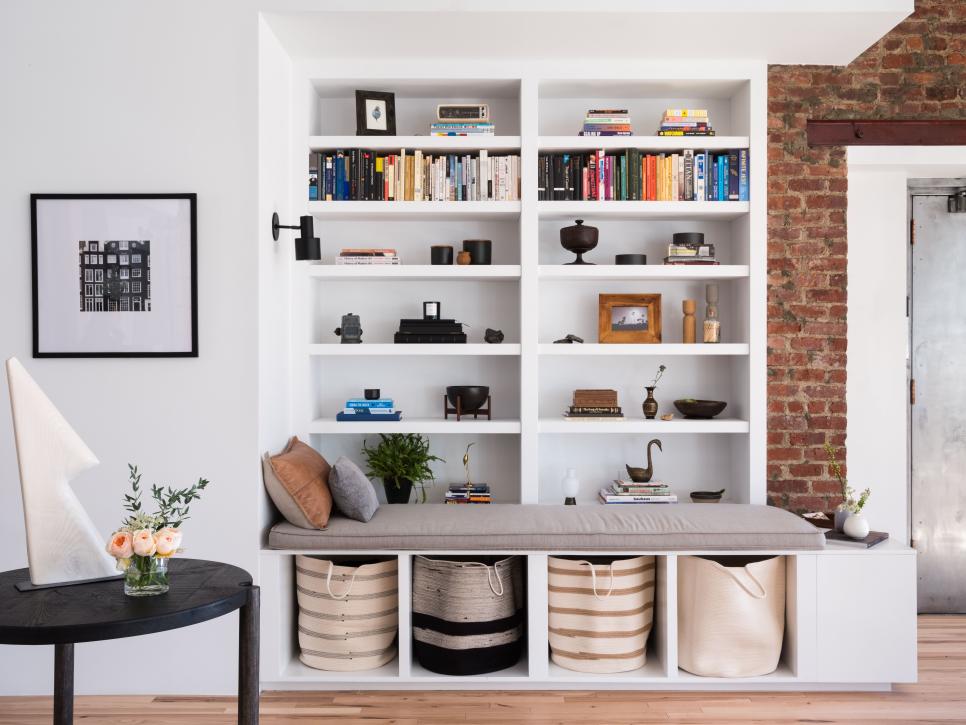
Choosing the Right Décor:
- Artwork and photographs: Framed prints, postcards, or family photos can add a personal touch.
- Sculptures and figurines: These can add dimension and interest to your display.
- Plants and greenery: Introduce some life with small potted plants or cuttings. They add freshness and vibrancy.
- Candles and diffusers: Create a welcoming ambiance with scented candles or essential oil diffusers.
- Vases and bowls: These can hold flowers, small trinkets, or other decorative items.
- Collections: Show off your hobbies and passions by displaying collections like vintage postcards, shells, or stamps.
Incorporating Different Elements: Layering and Texture
The key to successful bookshelf styling is layering and texture. This creates visual interest and depth.
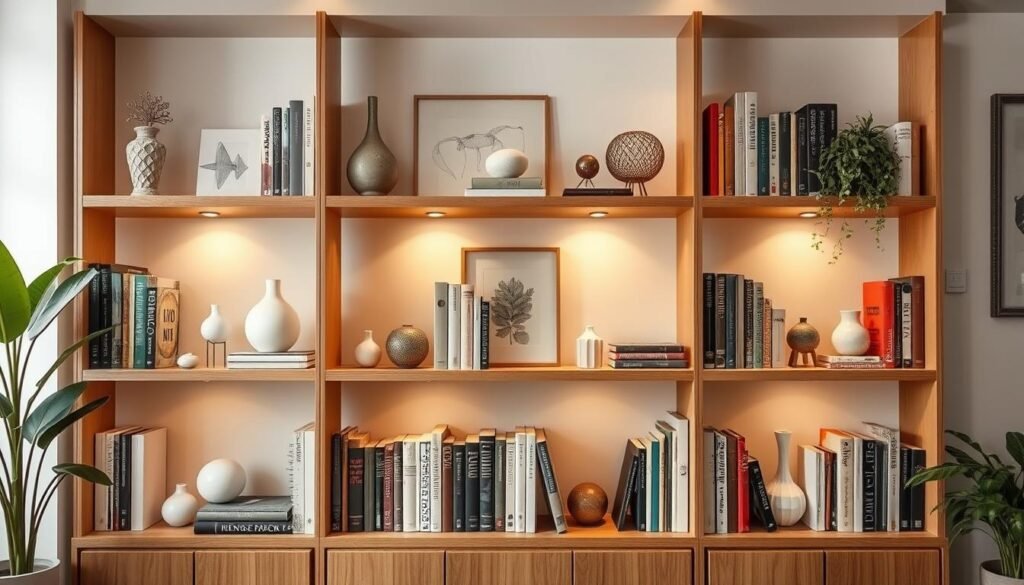
- Vary textures: Mix smooth and rough surfaces, soft and hard materials. This adds visual interest and prevents monotony.
- Layer items: Place smaller items in front of larger ones to create depth. Don’t be afraid to stack items on top of each other (safely!).
- Use different heights: Vary the heights of your items to create visual rhythm and avoid a flat look.
- Consider color palettes: Use a consistent color palette to maintain a cohesive look. But don’t be afraid of introducing pops of color.
Lighting and Placement
Lighting can dramatically impact how your bookshelf looks. Consider the following:
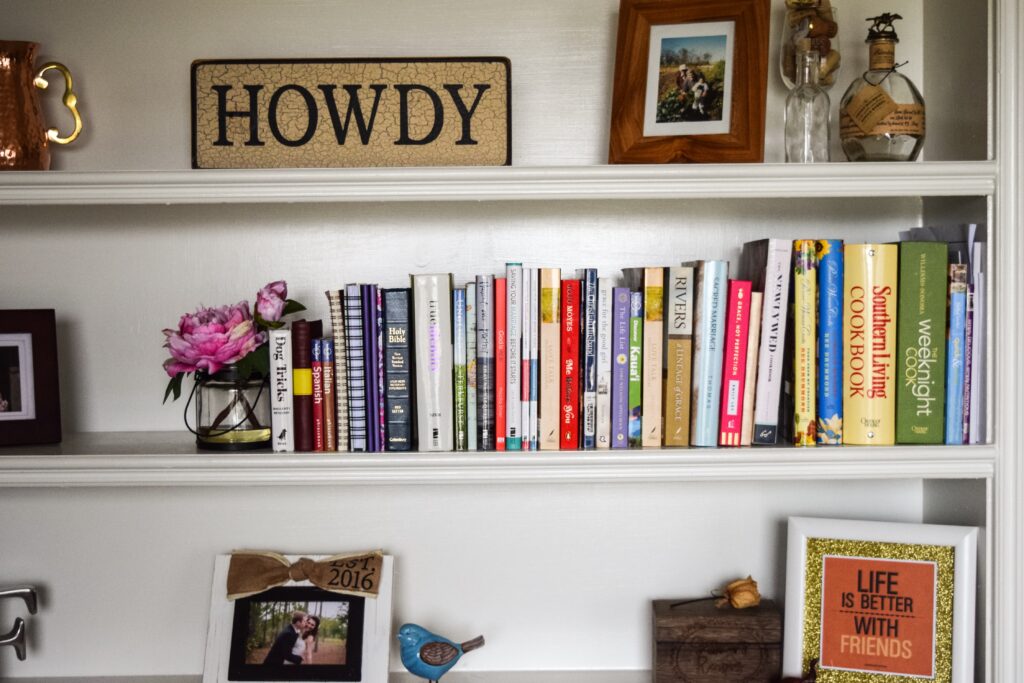
- Natural light: If possible, place your bookshelf near a window to take advantage of natural light.
- Artificial light: Use accent lighting to highlight specific items or create a mood.
- Placement: Consider the placement of your bookshelf in relation to other furniture and the overall room layout. Don’t overcrowd the space.
Maintaining Your Bookshelf Style
Once you’ve created your perfect bookshelf arrangement, don’t be afraid to change things up from time to time. Seasonal changes, new acquisitions, or simply a change of mood can inspire a fresh look. Regularly decluttering and rearranging your items will help maintain the stylish and organized appearance of your bookshelf.
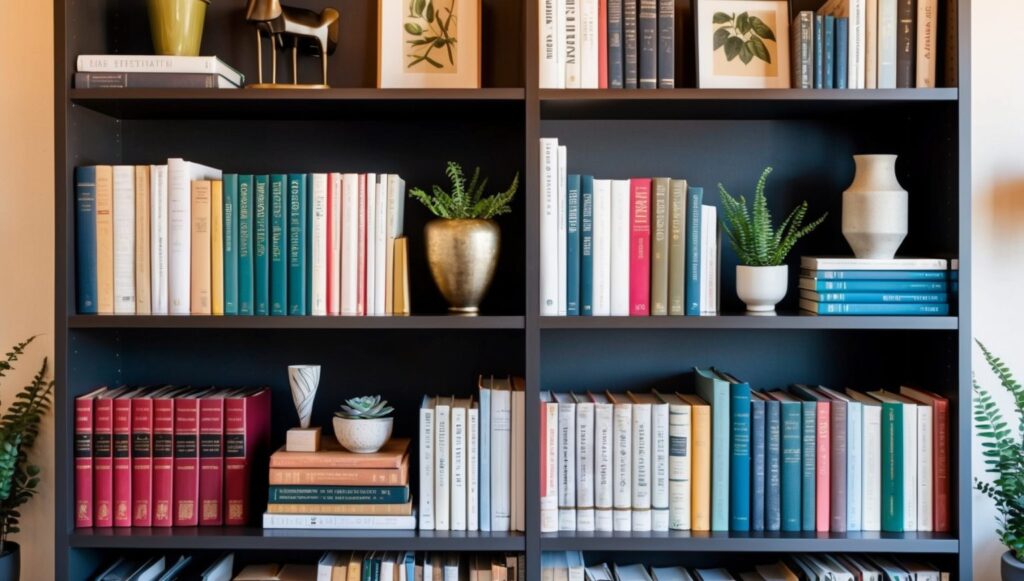
Common Mistakes to Avoid
- Overcrowding: Too many items can create a cluttered and overwhelming look.
- Lack of variety: A monotonous arrangement can be visually dull.
- Ignoring lighting: Poor lighting can diminish the impact of your display.
- Ignoring the overall room décor: Your bookshelf should complement the overall style of the room.
With a little planning and creativity, you can transform your bookshelf from a simple storage unit into a stunning focal point of your home. Embrace your style, experiment with different arrangements, and most importantly, have fun!
